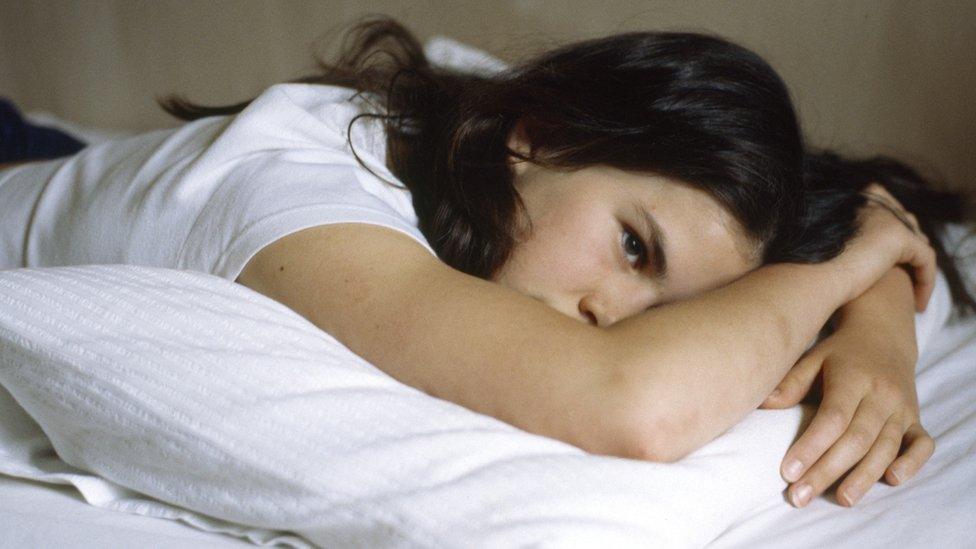Mental wellbeing worsens for Scottish teenagers, survey finds
- Published
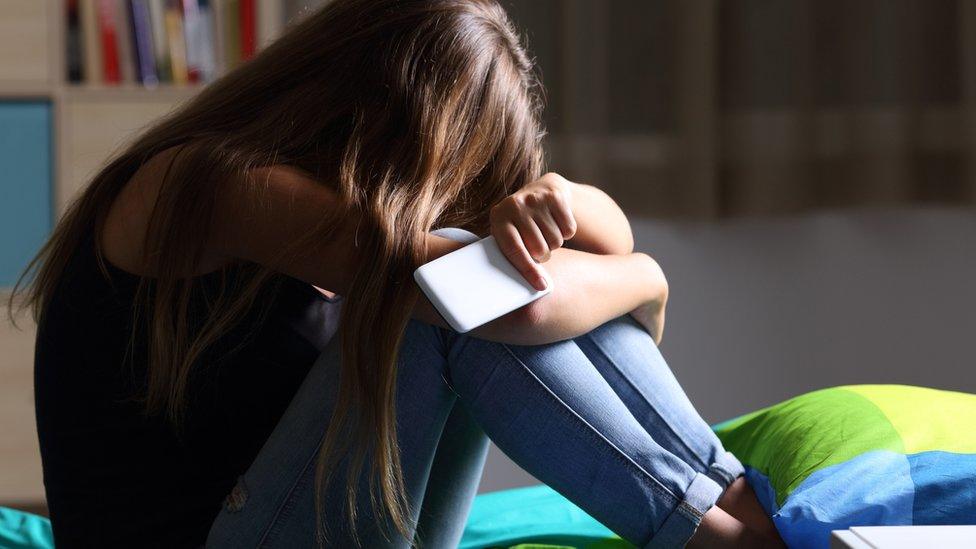
Scotland's teenagers are suffering a negative shift in mental wellbeing, according to a government survey.
Girls aged 15 continue to have the lowest scores when answering questions about mental health.
But the largest deterioration has come from 13-year-old girls and 15-year-old boys.
More than 21,000 S2 and S4 pupils were surveyed on a range of topics around mental health between September 2018 and April 2019.
The Scottish schools adolescent lifestyle and substance use survey (Salsus) report is one of the main sources of mental health data among young people in Scotland.
It also looked into smoking, drinking and drug use among teenagers.
Average mental wellbeing scores fell across all groups since the previous survey conducted in 2015, with the figure going from 48.4 to 46.9.
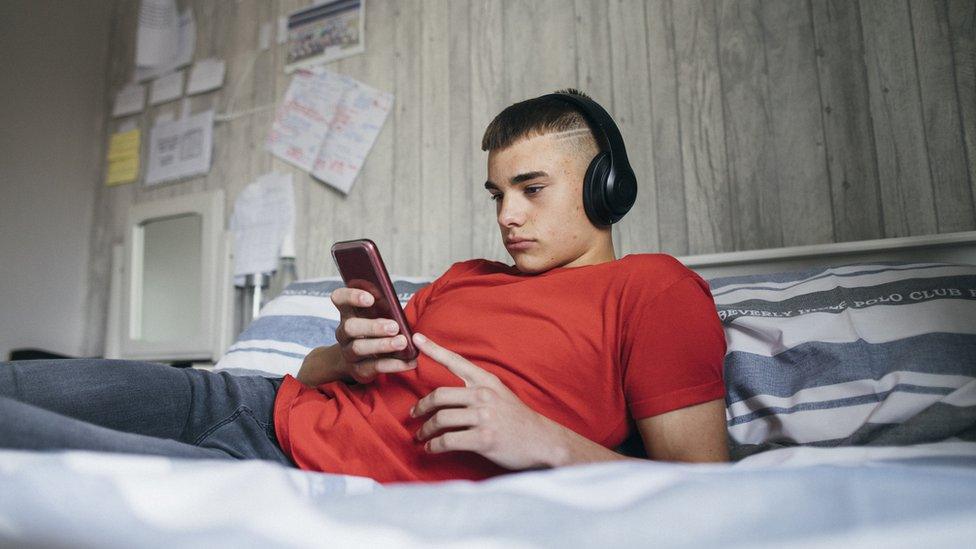
Teenagers who spoke to their parents had higher wellbeing scores
The children answered questions that identify trends in emotional and behavioural problems. They measure hyperactivity, emotional problems, behaviour and peer problems.
The latest scores showed a clear link between deprivation and emotional and behavioural problems.
'Acceptable to try drinking'
Those living in deprived areas and those who were less likely to talk to their parents had lower levels of mental wellbeing.
There was a "marked increase" in pupils who thought it was acceptable to try drinking alcohol and a small increase in those who thought it was acceptable to try smoking.
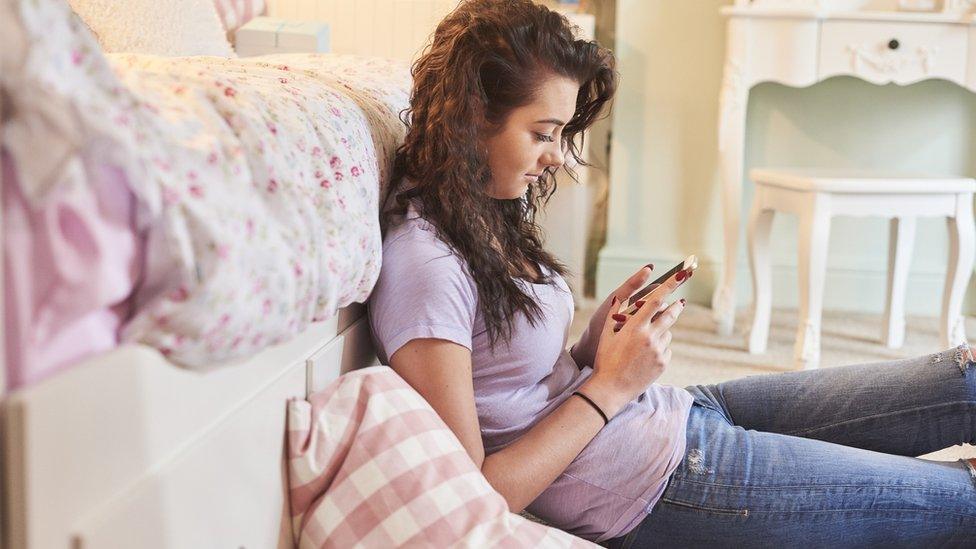
Social media can connect and also isolate young people
It was also discovered that the greater the number of close friends a pupil had, the less likely they were to have a low wellbeing score.
Responding to the survey, Mental Health Minister Clare Haughey said she wanted all young people to be supported to have good mental wellbeing.
She said: "Research shows there are a number of drivers that may negatively impact mental health in teenagers, including social media use and disrupted sleep, among other issues.
"In today's world, technology allows friendships to thrive and can help young people find the help and support for issues they are facing. But it's helpful for us all to be aware of our use of social media and the time we are spending online."
'Specialist support'
She added: "When social media and the online world starts to negatively affect our mood, it's important to know how to take care of ourselves. That's why we published advice about this for young people, which is specific to Scotland and has been created by the Scottish Youth Parliament and the Children's Parliament."
Ms Haughey acknowledged that supporting children and young people's mental health and wellbeing had been even more important during the Covid-19 outbreak.
She said Child and Adolescent Mental Health Services (CAMHS) would continue to support children and young people in need of specialist support.
- Published3 March 2020
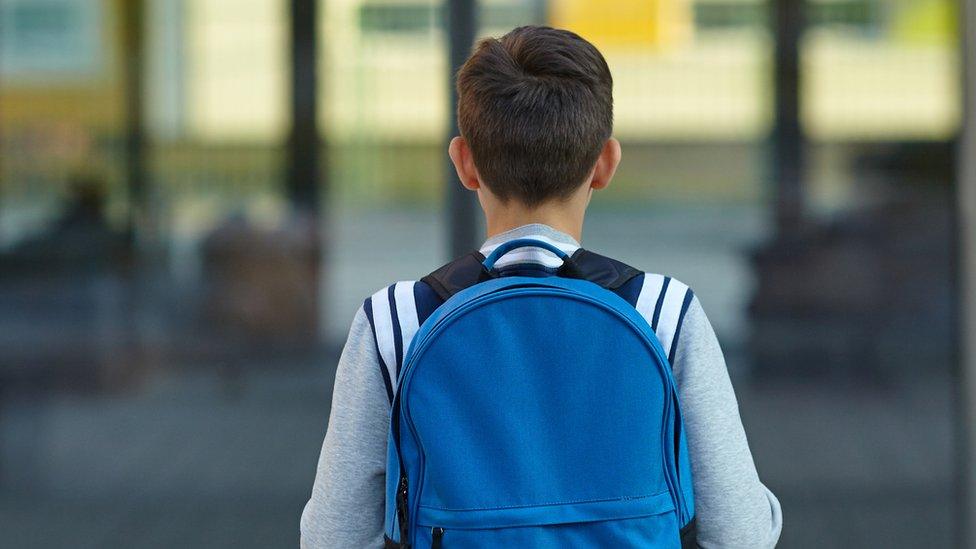
- Published30 January 2020
